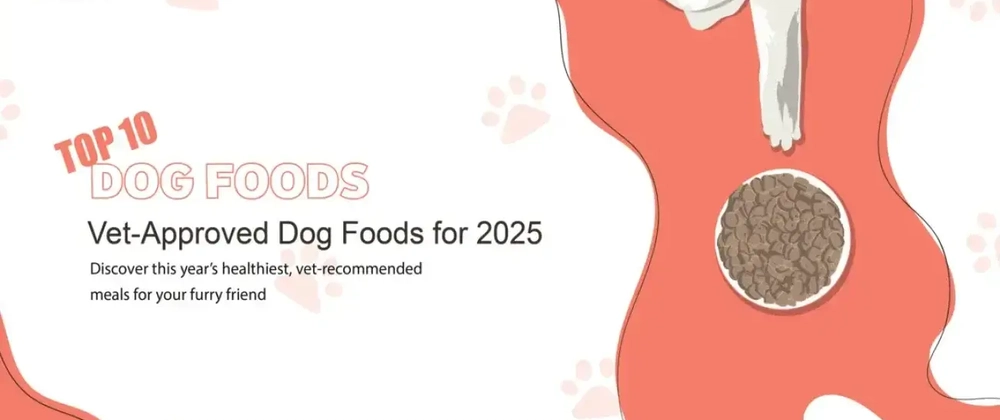Dog Nutrition Tips: A Complete Guide to Feeding Your Dog Right
Keeping your dog healthy starts with what’s in their bowl. Just like us, dogs thrive when they eat balanced, nutritious meals every day. If you’re wondering how to improve your dog’s diet and give them the best chance at a long, happy life, you’re in the right place. Here are essential Dog Nutrition Tips every responsible pet parent should know.
Why Good Nutrition Matters for Dogs
Your dog’s food fuels everything from their energy levels to their coat health and even their mood. A balanced diet can prevent obesity, allergies, digestive issues, and more. Think of food as your dog's first medicine — get it right, and you’ll avoid a lot of costly vet visits later.
- Know What a Balanced Dog Diet Looks Like A healthy dog diet should include: Protein: For muscle strength and tissue repair
Fats: For energy and skin/coat health
Carbs: For fiber and energy
Vitamins & Minerals: For immune support and organ function
Water: Always keep fresh water available!
- Choose High-Quality Ingredients When reading labels, look for real meat (like chicken, beef, or salmon) as the first ingredient. Avoid by-products, fillers like corn or soy, and anything artificial.
- Portion Control Is Everything Overfeeding is one of the most common mistakes pet owners make. Follow feeding guidelines on the packaging and adjust based on your dog’s weight, age, and activity level. If your pup is starting to look more like a loaf than a dog, it's time to reassess portions!
- Watch for Allergies and Sensitivities Common food allergens include wheat, soy, chicken, and dairy. Signs of allergies include constant scratching, ear infections, or upset stomach. Try switching to limited-ingredient or grain-free formulas if needed.
- Understand Your Dog’s Life Stage Puppies need more calories and nutrients to support rapid growth.
Adults need maintenance nutrition and steady energy.
Seniors may require joint-support ingredients and fewer calories.
Feeding a puppy senior food (or vice versa) can cause nutritional imbalances.
- Consider Special Diets When Necessary Some dogs benefit from: Weight management formulas
Joint-support blends with glucosamine
Skin & coat health diets with omega fatty acids
Consult your vet if your dog has chronic issues or needs a prescription diet.
7. Treats Are Not Meals
Yes, those puppy-dog eyes are hard to resist. But treats should make up no more than 10% of your dog’s daily calorie intake. Opt for natural, healthy options like freeze-dried liver, carrots, or even blueberries.
- Rotate Proteins for Better Nutrition Feeding the same food every day? Try rotating between proteins like chicken, fish, and lamb. This provides a broader range of nutrients and can reduce the risk of developing allergies. 9. Add Natural Boosters to Meals Toppers like bone broth, sardines (in water), and pureed pumpkin can add flavor and health benefits to your dog’s meal — just be sure everything is dog-safe. 10. Learn From the Experts If you want to dive deeper into trusted advice and detailed product recommendations, check out this complete guide to Dog Nutrition Tips. It covers top-rated dog foods and what to look for when choosing the right one for your dog. What About Homemade or Raw Diets? While some owners swear by them, homemade and raw diets require strict nutritional balance and hygiene. If you go this route, consult a vet or canine nutritionist to make sure your dog’s getting everything they need. Water: The Forgotten Nutrient Don’t underestimate the importance of fresh, clean water. Dehydration can lead to serious issues. Make sure your dog has access to water 24/7, especially during hot weather or after exercise. Watch Out for Human Foods That Are Toxic to Dogs Avoid feeding your dog:
- Chocolate
- Grapes and raisins
- Onions and garlic
- Avocados
- Xylitol (found in sugar-free gum and some peanut bu tter)
Always double-check before sharing snacks.
Combine Nutrition with Good Behavior
Feeding your dog well is just one part of the puzzle. Combine it with proper dog training to help your pup develop healthy habits, good behavior, and a better bond with you. From stopping excessive barking to mastering commands, training and nutrition go hand-in-hand.
Conclusion
Feeding your dog isn’t just about filling their bowl — it’s about fueling their body, mind, and spirit. By following these dog nutrition tips, you’re not just giving them food. You’re giving them love, health, and more years by your side.
Don’t forget to stay informed, adapt to your dog’s changing needs, and use trusted resources like ibelu to make the best choices for your four-legged family member.

